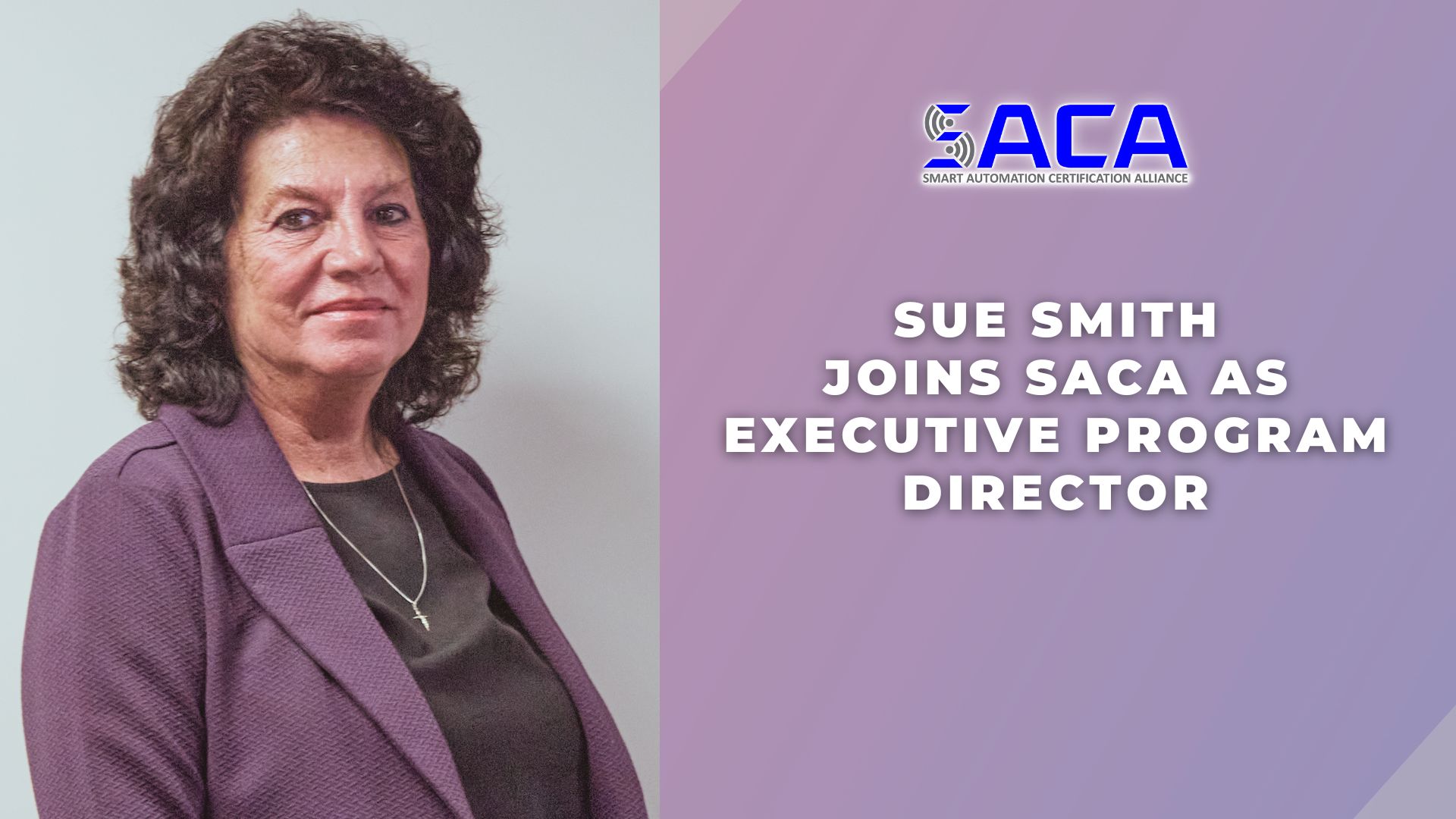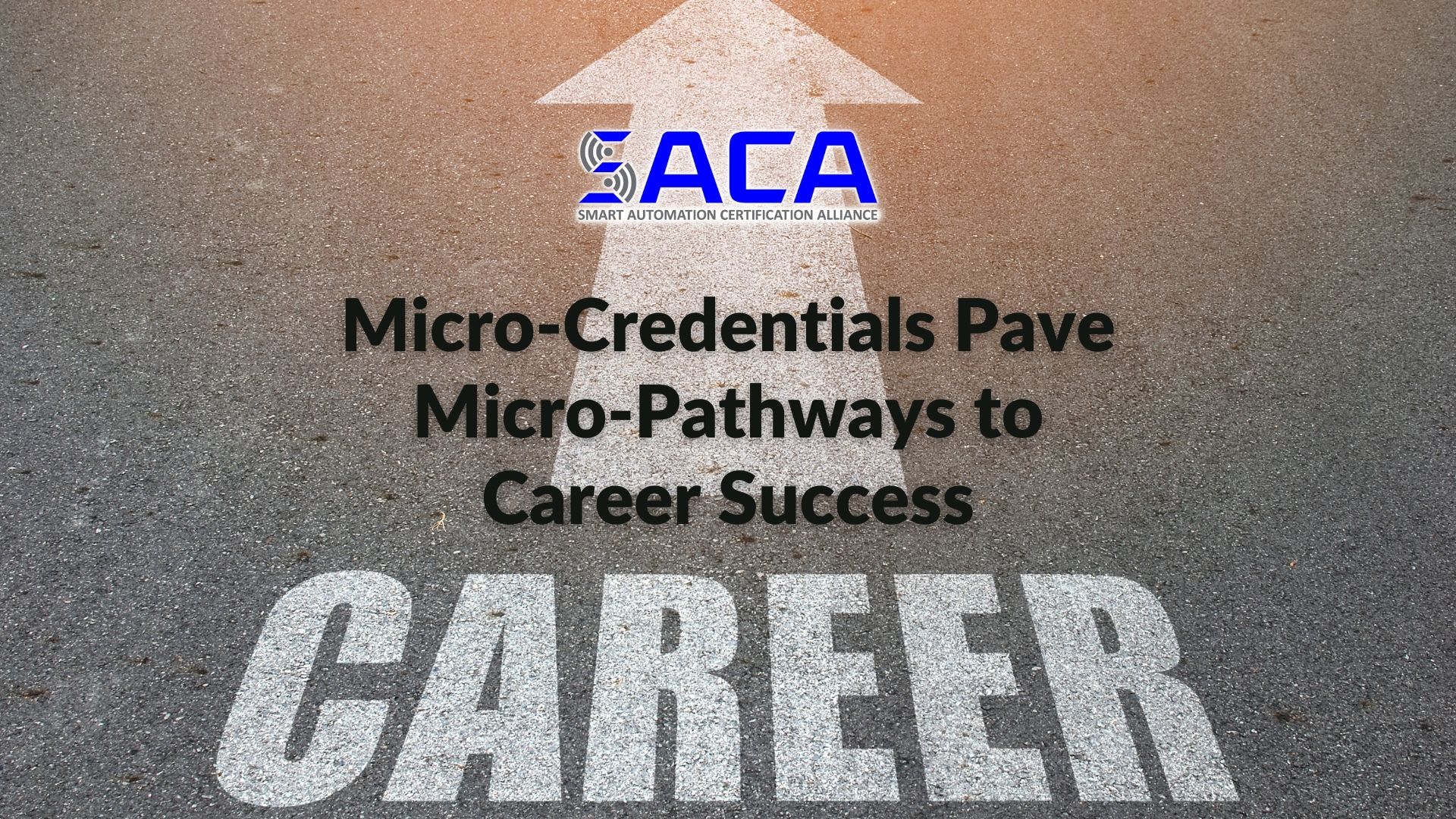
The Smart Automation Certification Alliance (SACA) is pleased to welcome Sue G. Smith as its new Executive Program Director. Smith joined SACA in May 2024 after working at the highest levels within Indiana’s Ivy Tech Community College for more than 30 years.
During her tenure with Ivy Tech, Smith developed expertise in consulting; workforce and economic development; program and partnership development; and advanced and smart manufacturing. Most recently, she served as Vice President of Ivy Tech’s award-winning School of Advanced Manufacturing, Engineering, and Applied Science (AMEAS).
At Ivy Tech, Smith prioritized strengthening programs with an eye toward economic and workforce development. In particular, she worked extensively with employers throughout Indiana and neighboring states to ensure the programs in the School of AMEAS aligned with industry needs.
Under Smith’s leadership, Ivy Tech’s School of AMEAS grew to be a major economic development resource for Indiana. It also became the first college in the United States to develop and deliver a smart manufacturing degree called Smart Manufacturing Digital Integration (SMDI).
Ivy Tech’s SMDI degree was based upon SACA credentials that were vetted with manufacturing employers. The SMDI degree has been especially attractive to new industries looking to move into Indiana, since advanced automation skills are critical for cutting-edge technologies used in electric battery, electric vehicle (EV), semiconductor, and biopharmaceutical manufacturing.
The success of Ivy Tech’s School of AMEAS and its groundbreaking SMDI degree has captured the attention of not only other community colleges and universities around the country, but also organizations around the world. In fact, Smith recently delivered a keynote address at the European Educational Congress in San Sebastian, Spain, on smart manufacturing and the implementation of embedding SACA credentials stacking into programs.
SACA Executive Director Jim Wall is excited to see Smith use her experiences at Ivy Tech to help other organizations build similar programs. According to Wall, “SACA’s been growing pretty dramatically in the last two years, so we needed to bring in a nationally-known leader in education and industry. We’re very proud and fortunate to say that Sue Smith has come on board as our Executive Program Director.”
Wall notes that “Sue’s primary responsibility is going to be helping to grow SACA membership by being a resource for instructors and administrators across the country. She’ll also be working with some of our industry partners to help them develop pathways internally for their employees that can utilize SACA certifications.”
Smith says, “I’m really excited to be with SACA.” Reflecting on her journey from Ivy Tech to SACA, Smith notes that “as I rolled that [SMDI] out at Ivy Tech, I got tons of calls from other community colleges and organizations saying, ‘Hey, how did you do this? Can you do this for us?’ So, when this position came up, I thought, ‘Yeah, I think I can do that for other schools and other industries.’”
What does Smith hope to accomplish with SACA? “I’m trying to accomplish that sort of ‘high tide raises all boats,’ if you will. I’m trying to make this opportunity available for employers and for community colleges and universities in any state.”
About SACA
SACA sits at the forefront of the effort to certify students and workers who demonstrate the required knowledge and hands-on smart automation skills employers so desperately need. SACA’s certifications were developed in conjunction with industry partners who could speak from experience about their needs when it comes to workers able to work alongside a variety of advanced automation technologies.
SACA offers a wide variety of certifications in popular industrial skill areas, including certifications at the Associate, Specialist, and Professional level. For those wishing to focus on building a strong foundation of skills employers need, SACA also offers many micro-credentials that allow students and workers to add certifications as they master new areas.
For workers, SACA certifications can help market their smart automation skills to potential employers. For those employers, SACA certifications represent confirmation that a worker has the skills to hit the ground running in the workplace. To learn more about Industry 4.0 certifications and how SACA can help both future workers and industrial employers begin the task of bridging the Industry 4.0 skills gap, contact SACA for more information.





